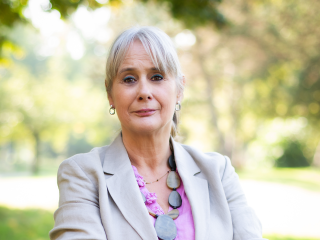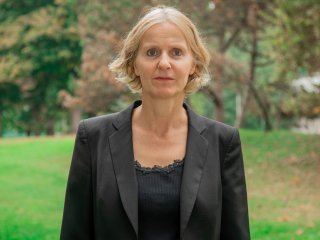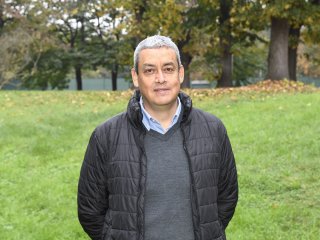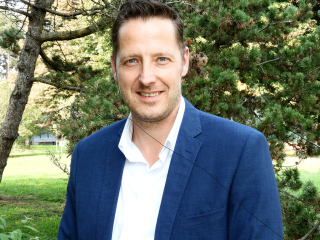Overview
We are the training arm of the International Labour Organization
The International Training Centre has been at the forefront of learning and training since 1964. As part of the International Labour Organization, it is dedicated to achieving decent work while exploring the frontiers of the future of work.
Training programmes at the Centre usually last between one week and five weeks, and run by our certified facilitators. Explore our courses, from free self-guided modules to multi-week academies, or learn more about the Turin Learning Approach.
The Centre extends beyond the classroom. Participants gain access to our eCampus platform, virtual reality experiences, hands-on workshops, and much more. Digital certificates are an easy way to prove and share achievements.
We deliver more than just training courses. We guide participants through learning journeys, featuring interactive workshops, virtual collaboration tools, and the latest educational technologies.

Powered by innovation
The core elements of our training programmes are inclusion, impact, and innovation.
- Unique structure. The Centre has nearly 60 years of experience in learning and training, as well as collaboration with the United Nations system and other centres of excellence across the globe.
- International environment. Even online, the diversity of our participants shines through. Our colorful patchwork of genders, nationalities, and professions is one of the Centre’s greatest strengths — people come from all over the world to learn, network, and practice new skills.
- Customizable programmes. Learning happens effortlessly when programmes and pedagogies consider individual needs and local contexts. And lifelong learning lasts longer: the Centre creates a multiplier effect by fostering communities of practice and professional networks.

Certificates and diplomas
The Centre issues three types of credentials – Certificates of Participation, Certificates of Achievement, and Diplomas – on the basis of learning hours and credits.
- Certificate of participation. Participants that register for and complete a one-hour course will receive a certificate of participation.
- Certificate of achievement. Selected participants that complete a course that lasts between 60 and 300 learning hours, including a final assessment, will receive a certificate of achievement.
- Diploma. Selected participants that complete a single or multi-track training activity that lasts a minimum of 300 learning hours, including a capstone project, will receive a diploma.

Explore by topic
Browse courses, projects, and stories relevant to your area of work or study.
Ethics, accountability, and transparency
The ITCILO is committed to transparency and accountability throughout its operations, activities, and decision-making processes. The Centre ensures that its policies and procedures are in line with best practices in the UN system and other public service institutions.
New measures and revisions of existing rules and procedures include the following:
-
An Ethics Officer has been appointed to foster a culture of integrity and high ethical standards
-
All staff members have agreed to observe the Standards of Conduct for the International Civil Service
-
All staff members are required to make periodic disclosures of conflicts of interests in addition to disclosures of financial interests
The Centre’s procedures will evolve over time. This is an essential part of the Centre’s commitment to enhancing transparency and accountability with regard to governments, employers’ and workers’ organizations, partners in the UN system, the development community, and the public. Changes to rules and procedures are communicated to all staff members.
The Ethics Officer of the ILO works independently and aims to foster a culture of integrity within the organization, including the ITCILO. The Ethics Officer keeps a confidential record of all issues brought to their attention and remains independent of any official, department, or other organizational entity of the Centre.
Jordi Agustí-Panareda was appointed as Ethics Officer of the International Labour Office on 1 July 2022. He also performs this function for the ILO International Training Centre in Turin, Italy. He joined the ILO in 2008 and previously held the positions of Senior Legal Officer at the Office of the Legal Adviser and Head of Unit (Freedom of Association) at the International Labour Standards Department.
He can be reached at:
- +41 22 799 7268
- agusti-panareda@ilo.org
The Ethics Officer provides confidential guidance to Human Resources Services, as well as individual managers and staff members, to ensure that all policies, procedures, and practices adhere to ethical standards and that the ethical standards pertaining to the Centre’s officials are clearly understood. The consultation is not intended to replace existing procedures, but merely provides interested officials with confidential guidance before they take action.
The Ethics Officer does not receive reports of misconduct, make administrative decisions regarding employment, nor resolve grievances in cases of conflict.
The Ethics Officer works with Human Resources Services to design and promote programmes that increase staff members’ awareness of ethical issues. All staff have read, understood, and signed the Standards of Conduct for the International Civil Service and are expected to adhere to the standards of behavior described in the text.
Additional ethical standards include Chapter IV of the Centre’s Staff Regulations regarding duties, obligations, and immunities, as well as Circular HRS 28/2008 concerning rules and approval procedures governing outside activities.
If a staff member believes that action has been taken against them for reporting misconduct or cooperating with an audit or investigation, the Ethics Officer conducts a fair and transparent preliminary review.
This protection of officials is known as whistleblower protection, and aims to reinforce the opportunity for all officials to report cases in which ethical standards have been disregarded without fear of retaliation.
The Ethics Officer has the following responsibilities:
-
Keep a confidential record of all issues brought to their attention
-
Determine if the complainant has engaged in a protected activity and whether there is a prima facie case to conclude that the protected activity was a contributing factor in the alleged retaliation or threat of retaliation
-
Refer the matter to Human Resources Services for disciplinary action, if necessary
- Basic documents
- Standards of Conduct for the International Civil Service
- Chapter IV of the Centre’s Staff Regulations
- Circular DIR 02/2024 on The Centre’s Accountability Framework
Key Standards and Mechanisms - Circular HRS 28/2008 on Rules and Approval Procedures Governing Outside Activities
- Circular DIR 04/2011 on Conflict of Interest
- Circular DIR 03/2019 on Protection of Personal Data
- Circular 05/06 on Spouse and Other Family Member Employment Policy
- Rules Governing Conditions of Service for Short-Term Officials
- Circular DIR 01/2013 on Prevention and Detection of Fraud
- Circular DIR 06/2008 on Register of Financial Interests
- Financial Rules of the Centre
- Accountability Framework
- Principles of Conduct for Staff of the International Training Centre of the International Labour Organization

Organization and structure
Strong leadership guides our work.
The Centre is led by a Management Team, chaired by the Director, who is also the Director of the Turin School of Development, and organized into thematic departments. The Director of Training manages all course-related programmes.
Download the ITCILO organizational chart here.
Senior management

Donors and partners
The Centre is a nonprofit organization.
The International Labour Organization and the Government of Italy provide core funds. The United Nations, World Bank, European Union, development banks, foundations, and governments provide financial and technical support.
To mobilize voluntary contributions, the Centre maintains close liaison with its traditional development partners, among which the governments of Italy, Portugal, Ireland and Japan are prominent. In addition, the Centre mobilizes voluntary contributions from new development partners; these may include in-kind contributions, such as the temporary secondment of training experts to the Centre.
The Centre manages a global network of development partners, such as professional organizations and training institutions. Staff work with partners to create training programmes that match participants’ needs.
Tailor-made programmes may be funded by the client organization and/or donor agencies.
The Centre occasionally wins projects through competitive tendering.



























